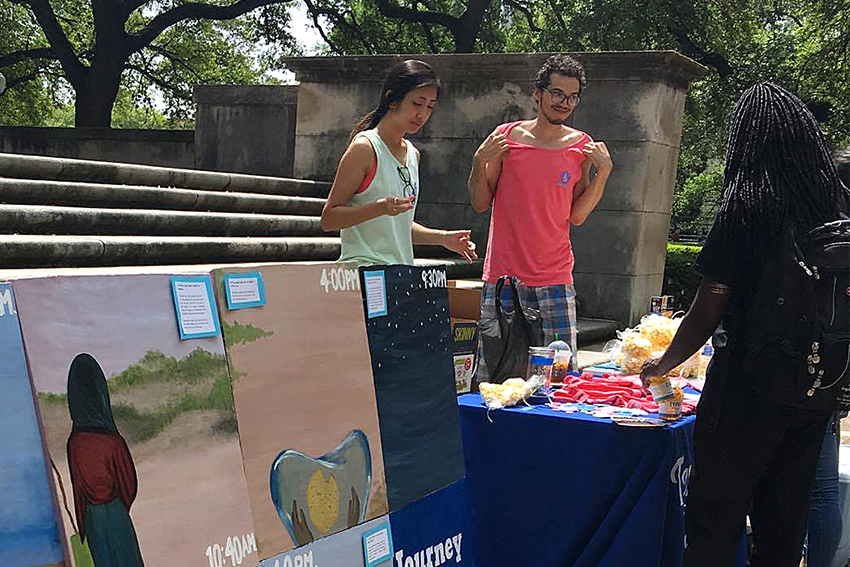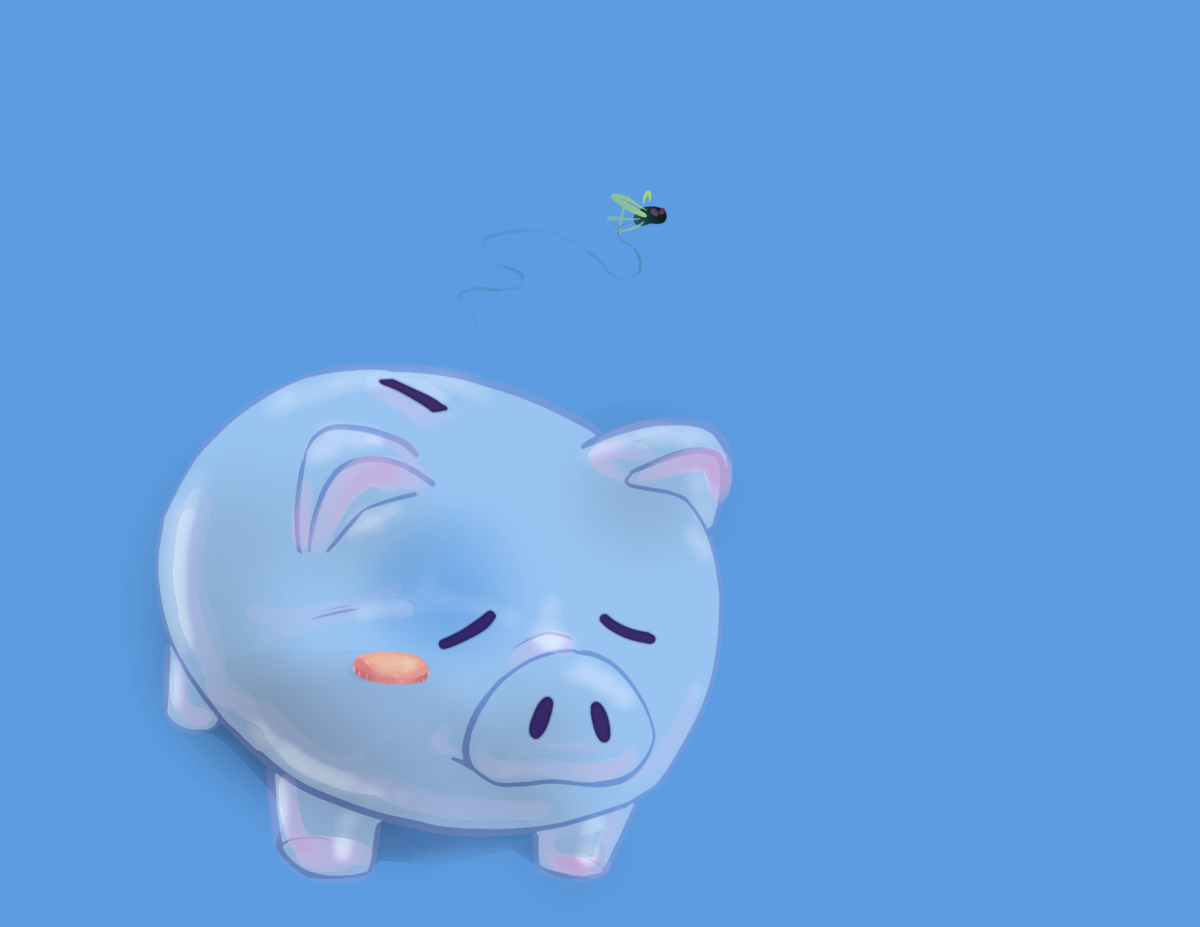Perspiration gathers at her brow as she trudges for miles under the burning Ethiopian sun. Aysha embarks on this long, arduous journey for water every day — water that most times is not even clean.
Texas UNICEF kicked off World Water Week on Monday by telling the story of Aysha, a fictional character that chronicles a typical story of a young girl from Ethiopia and her journey to get clean water, through an art exhibition on the West Mall. Biology junior Marlon Haygood, who is Texas UNICEF’s social chair, said the art pieces were made by the club’s officers to show the struggles people have to get clean water.
“Usually we do a fair, but this time we decided to be a bit more visual,” Haygood said. “The art exhibit just shows the struggle that some people have to go through for something that we can just turn the tap and sort of get.”
Psychology freshman Sonia Patel said the visual aids helped her comprehend a new perspective.
“I think once you actually stop to think about what’s going on in other places, it inspires you to think, ‘Hey, what can I do to help those who have something that I have such easy access to?’” Patel said.
Biology sophomore Shannon Tung, Texas UNICEF’s advocacy and outreach chair, said the club will also be raising money for UNICEF’s Clean Water Initiative. The proceeds will be gathered from events throughout the week, including a Potbelly profit share and water volleyball tournament.
“We’re accepting donations, and we’re trying to raise money this whole week to give to those who don’t have access to clean water, so they can build wells and gain this access,” Tung said.
Texas UNICEF decided to initiate World Water Week five years ago in order to educate people about the lack of clean water in underdeveloped countries, Tung said.
“I just hope that people grow just a little bit more conscious about what is going on in the world,” Tung said. “Before I joined UNICEF, I wasn’t thinking that I get access to this really clean, really purified water. We can easily drink tap water here in America, but some people in Africa need to travel so far to get water that’s not even clean and can get them sick.”





















